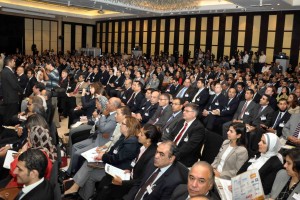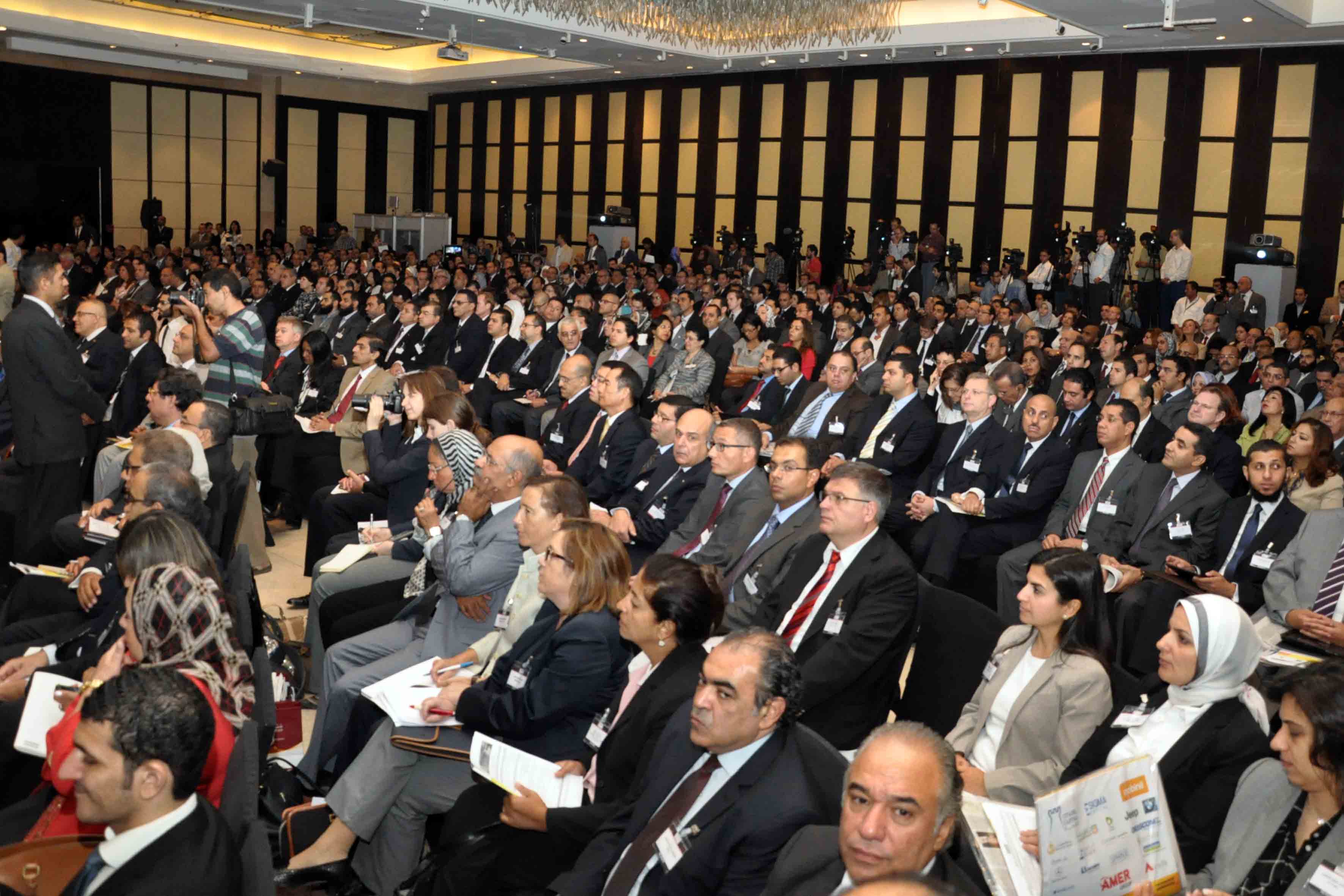
Egypt’s embattled economy and record-budget deficit shared centre stage at the 2012 Euromoney Conference, which kicked off Tuesday at the Fairmont Heliopolis hotel.
Prime Minister Hisham Qandil presented a packed room of delegates with a sobering picture of the county’s dire financial straits post revolution: an EGP 170 billion budget deficit, 13% unemployment and just 2.2% growth in the last fiscal year. Making things infinitely worse is the nation’s staggering record-level public debt, worth LE 1.39 trillion.
But there a silver lining in the gloom. According to Qandil, authorities are getting closer to landing a key International Monetary Fund (IMF) loan worth $4.8 billion, which is set to open the doors to further donor cash from the EU and other international donors. He added that an Egyptian delegation is heading to Tokyo for an IMF meeting this week and will host IMF officials in Cairo at the end of the month.
“This government has a mission to facilitate economic growth and social justice and lead it through these challenges. We have what it takes to do it. We are on the right track toward achieving our vision,” said Qandil.
But not everyone is as confident.
Attendees vented their frustrations throughout the day over the country’s lack of a comprehensive, multifaceted plan detailing how the government is going to narrow the deficit, restart the country’s economic drivers and restore confidence in the business environment.
Mostafa Seada, an investment analyst at the Arab Contractors Pension Fund, which has a portfolio of around EGP 1 billion, said delegates were hoping to get a better idea of the policies and legislation to expect in the next few months, which could have a huge effect on the business and investment community.
“We are looking forward to new opportunities for investment, so we thought it would be a good [idea] to come to this conference and find out about the investments available now in Egypt. The ministers they have got ideas but no creativity or new ways of thinking,” he says. “We need something different, we need to innovate. We are looking for new projects, like small and medium-sized enterprises, but there is no clear vision yet.”
Dr. Hussein El Kazzaz, the advisor to the president on the Nadha Project, said the lack of details, at least when discussing his party’s national development plan, is deliberate because the blueprint is not complete.
“We have an enormously ambitious vision… we’re not thinking in small terms, that’s for sure… But we are staying out of the media to get our work done,” he said. He added that President Mohamed Morsy is “interested in resolving problems” and that the Nadha plan, which has come under fire from homegrown and international critics alike for its lack of concrete economic solutions, will be unveiled in January.
“Tens of millions of Egyptians are not contributing to the economy. We need a political shift and to rethink our lifestyles to achieve this renaissance,” said Kazzaz.
Others worry that the country cannot afford to wait that long to implement much-needed reforms to area like subsidies and labour law.


